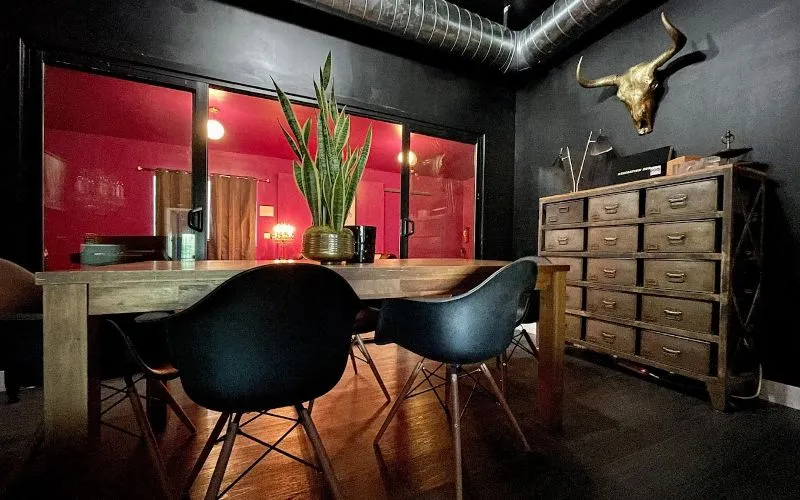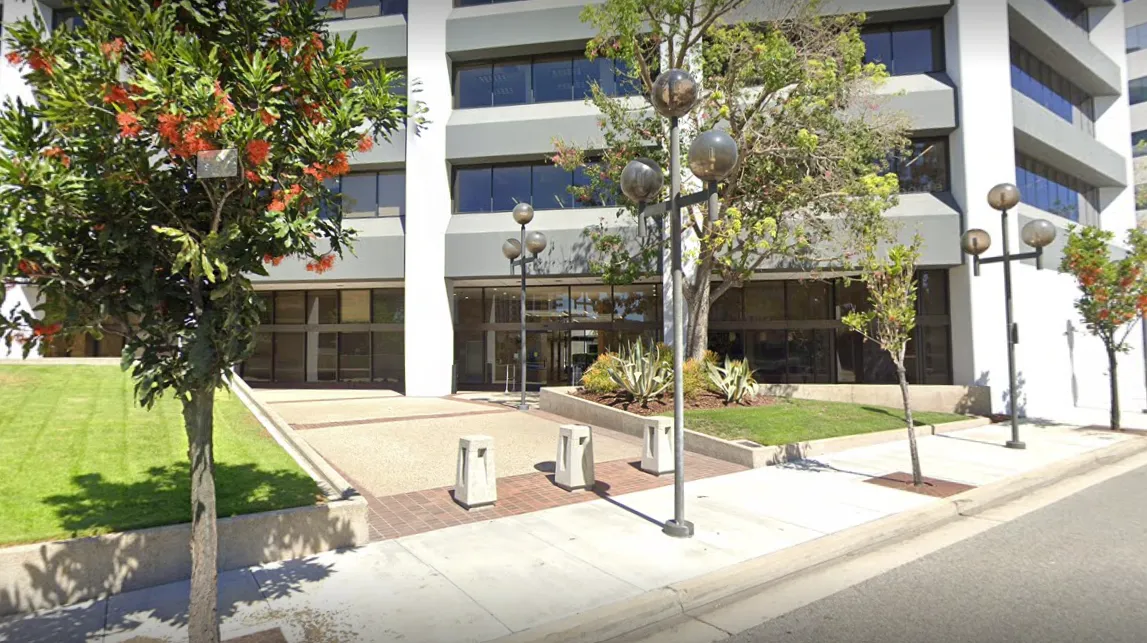Explore leading behavioral health treatment centers and facilities in Los Angeles and nearby areas. Behavioral health treatment centers provide vital support for individuals struggling with behavioral addictions such as gaming, pornography, internet, gambling, and sex addiction. These facilities offer a structured, professional environment where individuals receive personalized therapy, psychiatric care, and evidence-based interventions to regain control and restore emotional balance. Find the best behavioral health centers dedicated to helping clients achieve stability, resilience, and a healthy, fulfilling lifestyle.
Ads
More Info
Advertisement Disclosure
Our website is funded by advertisers who pay for prominently labeled placements.
Read More93 Rehab Centers were found
Filters
Locations
- Los Angeles(+98)
- Culver City(+14)
- Westlake Village(+13)
- Woodland Hills(+11)
- Beverly Hills(+10)
- Santa Monica(+9)
- Sherman Oaks(+7)
- West Hollywood(+6)
- Malibu(+5)
- Chatsworth(+5)
- Pasadena(+5)
- Encino(+5)
- Redondo Beach(+4)
- Lancaster(+4)
- Reseda(+4)
- Studio City(+4)
- Northridge(+3)
- San Mateo(+3)
- Lynwood(+3)
- Vernon(+3)
- Van Nuys(+3)
- Tarzana(+3)
- North Hollywood(+3)
- Glendale(+3)
- Gardena(+3)
- Riverside(+3)
- Granada Hills(+2)
- Shadow Hills(+2)
- Venice(+2)
- Orange County(+2)
- Pomona(+2)
- West Hills(+2)
- Valley Village(+2)
- Burbank(+2)
- Brentwood(+2)
- Long Beach(+2)
- Sun Valley(+1)
- Torrance(+1)
- San Jacinto(+1)
- San Pedro(+1)
- Upland(+1)
- Whittier(+1)
- Toluca Lake(+1)
- Thousand Oaks(+1)
- Simi Valley(+1)
- Mission Viejo(+1)
- Acton(+1)
- Beaumont(+1)
- Wilmington(+1)
- Panorama City(+1)
- Anaheim(+1)
- Laguna Hills(+1)
- Inglewood(+1)
- Alhambra(+1)
- Rosemead(+1)
- Maywood(+1)
- Manhattan Beach(+1)
- Monterey Park(+1)
- Claremont(+1)
- Covina(+1)
- La Puente(+1)
- Pico Rivera(+1)
- San Fernando(+1)
- Azusa(+1)
- Santa Fe Springs(+1)
- Glendora(+1)
- Agoura Hills(+1)
- El Segundo(+1)
- Duarte(+0)
- Sunland(+0)
- Downey(+0)
- Cudahy(+0)
- El Monte(+0)
- Compton(+0)
- Hermosa Beach(+0)
- Cerritos(+0)
- Calabasas(+0)
- Bellflower(+0)
- Bell Gardens(+0)
- Avalon(+0)
- Arcadia(+0)
- Altadena(+0)
- Paramount(+0)
- South El Monte(+0)
- Walnut(+0)
- West Covina(+0)
- Santa Clarita(+0)
- San Gabriel(+0)
- San Dimas(+0)
- Rolling Hills(+0)
- Orange(+0)
- Hawaiian Gardens(+0)
- Palmdale(+0)
- Norwalk(+0)
- Montebello(+0)
- Lakewood(+0)
- South Pasadena(+0)
- Carson(+0)
- Hawthorne(+0)
Conditions
- Drug(+278)
- Alcohol(+219)
- Mental Health(+195)
- Opioid(+193)
- Cocaine(+184)
- Trauma(+180)
- Methamphetamine(+177)
- Benzodiazepines(+174)
- Heroin(+173)
- Prescription Drugs(+159)
- Depression(+152)
- Anxiety(+149)
- Xanax(+145)
- Synthetic Drugs(+138)
- PTSD(+133)
- Adderall(+131)
- Marijuana(+112)
- Bipolar(+109)
- Ecstasy(+104)
- MDMA(+99)
- Behavioral Health(+93)
- LSD(+93)
- Psychedelics(+91)
- Fentanyl(+71)
- Stress(+71)
- OCD(+69)
- Personality Disorders(+63)
- ADHD(+61)
- Gambling(+38)
- Eating Disorders(+35)
- Anorexia(+34)
- Binge Eating Disorder(+34)
- Bulimia(+33)
- Schizophrenia(+32)
- Gaming(+28)
- Internet Addiction(+27)
- Sex Addiction(+25)
- Burnout(+23)
- Pornography(+22)
- Shopping(+10)
- Narcissism(+8)
Insurances
- BlueCross BlueShield(+129)
- Aetna(+126)
- Anthem(+105)
- Cigna(+105)
- United Healthcare(+66)
- Humana(+63)
- Optum(+53)
- Medicaid(+53)
- MHN(+51)
- Magellan Health(+47)
- Kaiser Permanente(+39)
- Medicare(+31)
- GEHA(+31)
- ComPsych(+29)
- Highmark(+25)
- AmeriHealth(+13)
- Tufts Health(+11)
- Oscar(+9)
- CareFirst(+9)
- Molina Healthcare(+8)
- Intermountain Healthcare(+6)
- Beacon Health Options(+2)
- UMR(+2)
- NYSHIP(+2)
- ILWU(+2)
- Geisinger(+2)
- Empire Life(+2)
- Empire BCBS(+2)
- Bright Health(+2)
- GuideWell(+1)
Therapies

$30,000-$50,000

N/A

N/A

N/A

$1,50

N/A
Behavioral Health Treatment Centers & Programs in Los Angeles
Behavioral Health Treatment Centers & Programs in Los Angeles
Behavioral health treatment centers provide essential, specialized care for individuals facing mental health and behavioral conditions, such as gaming addiction, porn addiction, internet addiction, gambling addiction, and sex addiction. These centers also address broader mental health challenges like anxiety, depression, and mood disorders. Treatment is structured and evidence-based, promoting long-term emotional and psychological well-being.
Understanding Behavioral Health
Behavioral health encompasses the relationship between behavior, emotional regulation, and mental wellness. Many individuals experience:
- Ongoing anxiety, stress, or emotional instability
- Trouble handling daily responsibilities or relationships
- Substance misuse or dependency (drug addiction or alcohol use disorder)
- Changes in sleep, eating, or self-care habits
- Difficulty managing emotions or impulsive actions
Seeking help from a behavioral health professional is a proactive and empowering step. Treatment services provide tools to regain control and improve quality of life.
When to Seek Behavioral Health Treatment
Consider professional behavioral health support when:
- Emotional or behavioral issues disrupt daily functioning
- Attempts at self-management have not been effective
- There are thoughts or behaviors related to self-harm or substance use
- Symptoms impact relationships, job performance, or overall satisfaction
Types of Behavioral Health Treatment Programs
Outpatient Behavioral Health Programs
Outpatient care allows individuals to access therapy and support while maintaining daily routines. These programs include:
- Individual and group counseling
- Therapies like CBT, DBT, and Motivational Interviewing
- Medication evaluation and management
Intensive Outpatient Programs (IOP)
IOPs offer more frequent and structured therapy sessions, emotional regulation skills, and supportive group settings. For more information on levels of care, see Levels of Care.
Partial Hospitalization Programs (PHP)
PHPs provide intensive day programs, comprehensive psychiatric care, and integrated support for those with trauma or co-occurring disorders.
Residential Behavioral Health Programs
Residential programs offer 24-hour care, intensive therapy, and long-term skill-building to support sustainable recovery.
Specialized Behavioral Health Treatments
Treatment centers may provide:
- Individual, group, and family therapy
- Psychiatric assessment and medication management
- Life skills training and relapse prevention
- Holistic therapies such as mindfulness, art, or outdoor therapy (learn more about therapies)
Specialized Mental Health Treatment Programs
Facilities may focus on specific conditions like:
- Anxiety disorders – CBT, exposure therapy, mindfulness
- Depression – talk therapy, lifestyle interventions, medication
- PTSD and trauma – trauma-informed therapy, EMDR, somatic approaches
- OCD – ERP and cognitive therapy
- Bipolar disorder – mood stabilization and ongoing psychiatric care
Some centers offer dual diagnosis programs for those with both substance use and behavioral or mental health conditions.
Choosing the Right Behavioral Health Treatment Center
When evaluating a treatment center, consider:
- Types of therapies and services offered
- Specialization in certain conditions
- Qualifications of therapists and medical staff
- Financial accessibility and insurance options
- Facility environment and treatment philosophy
Many centers offer free consultations to help individuals or families select the right program.
Life After Behavioral Health Treatment
Recovery is ongoing, with support often including:
- Regular therapy or mental health check-ins
- Support groups and peer communities
- Mindfulness practices and stress management
- Healthy routines around sleep, diet, and exercise
Aftercare programs help individuals maintain progress and stay connected to resources.
Finding Behavioral Health Treatment in Los Angeles
Los Angeles offers a wide range of behavioral health treatment options, from outpatient therapy to residential programs. Whether you are dealing with a specific behavioral addiction or seeking help for a mental health challenge, you can explore additional conditions at our directory of behavioral health and mental health conditions for more resources and support.
The first step toward recovery is reaching out to a qualified behavioral health professional to create a personalized plan tailored to your needs.
Frequently Asked Questions
What types of behavioral health treatment are available in Los Angeles?
How do I know if I need behavioral health treatment?
Is residential behavioral health treatment necessary for everyone?
Does insurance cover behavioral health treatment?
Ads
More Info
Advertisement Disclosure
Our website is funded by advertisers who pay for prominently labeled placements.
Read More






































